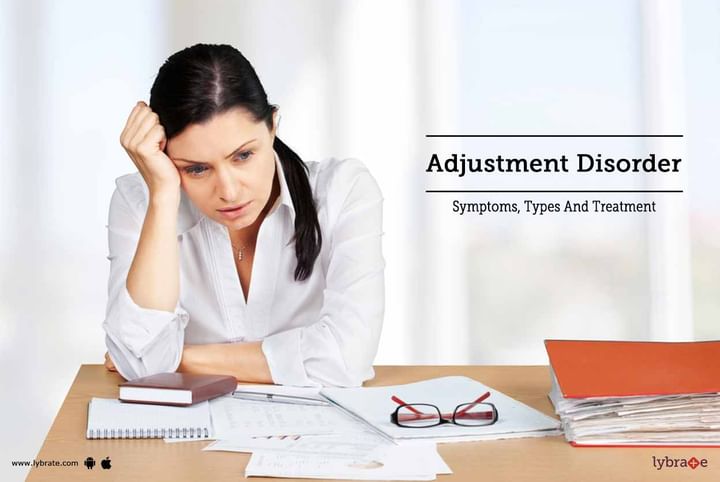Get the App
For Doctors
Login/Sign-up
Last Updated: Oct 23, 2019
BookMark
Report
Adjustment Disorder - Symptoms, Types And Treatment
Mrs. Chhaya JainPsychologist • 15 Years Exp.M.Sc - Applied Psychology, Advanced Diploma In Counselling Psychology
What Is Adjustment Disorder?
Adjustment disorder is considered to be a group of conditions, which usually occur when a person experiences difficulty in coping with the stressful life events. These usually include relationship issues, job issues or the demise of a loved one. The incapacity to adjust to stressful events leads to psychological and sometimes physical symptoms.
Symptoms of Adjustment Disorder
- The psychological and physical symptoms linked with adjustment disorder occur either during or instantly after a stressful event. The disorder only lasts for 6 months, but the symptoms might continue if the stressor has not been removed. The symptoms might vary from person to person.
- The psychological symptoms are anxiety, crying, impulsiveness, lack of concentration, low or loss of self-esteem, feeling hopeless, sad or trapped, and withdrawn attitude along with suicidal tendencies.
- These physical symptoms can include trembling, twitching of the muscles, soreness, body pain, insomnia, indigestion and fatigue.
- Adjustment disorder might display psychological and physical symptoms separately or together.
Types of Adjustment Disorder
There are 6 adjustment disorders and each one of them is associated with different symptoms:
- Adjustment disorder with depressed mood: People diagnosed with this suffer from feelings of hopelessness and sadness is often related with crying. Also, a person might not enjoy the activities, which he earlier enjoyed.
- Adjustment disorder with anxiety: Symptoms of this are anxiety along with being anxious, overwhelmed, and worried. People with this show less concentration and poor memory. When diagnosed in children, it is usually due to the separation anxiety from loved ones and parents.
- Adjustment disorder with mixed anxiety and depressed mood: In this both anxiety and depression is experienced.
- Adjustment disorder with disturbance of conduct: The symptoms of this disorder are more about the involvement of the behavioral issues like starting a quarrel, reckless driving, destructing property and stealing. Teens suffering from this might become absent from school.
- Adjustment disorder with mixed disturbance of emotions and conduct: The symptoms of anxiety, depression, and behavioral issues are observed.
- Adjustment disorder unspecified: People who are diagnosed with this type of disorder usually display symptoms those are not associated with other disorders. They exhibit more of physical symptoms and problems with family and friends or at school and workplace.
Treatment of Adjustment Disorder:
If diagnosed with an adjustment disorder, a person can definitely benefit from treatment. This is usually treated with therapy or medicines or a combination of both.
- Therapy is the first choice. A health counselor or a psychologist can give counseling and if there is a need for medication, then you might be referred to a psychologist.



+1.svg)
